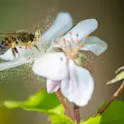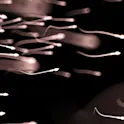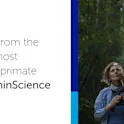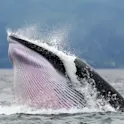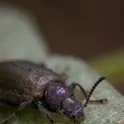
Featured news
23 Sep 2022
Ancient Maya cities were dangerously contaminated with mercury
By Mischa Dijkstra, Frontiers science writer Temple of the Great Jaguar at Tikal, a UNESCO world heritage site in Guatemala. Image credit: Leonid Andronov,/ Shutterstock.com A new review shows that the soil in the cities of the ancient Maya are heavily polluted with mercury. As vessels filled with mercury and objects painted with cinnabar have been found at many Maya sites, the authors conclude that the Maya were heavy users of mercury and mercury-containing products. This resulted in severe and dangerous pollution in their day, which persists even today. The cities of the ancient Maya in Mesoamerica never fail to impress. But beneath the soil surface, an unexpected danger lurks there: mercury pollution. In a review article in Frontiers in Environmental Science, researchers conclude that this pollution isn’t modern: it’s due to the frequent use of mercury and mercury-containing products by the Maya of the Classic Period, between 250 and 1100 CE. This pollution is in places so heavy that even today, it poses a potential health hazard for unwary archeologists. Lead author Dr Duncan Cook, an associate professor of Geography at the Australian Catholic University, said: “Mercury pollution in the environment is usually found in contemporary urban areas and […]
